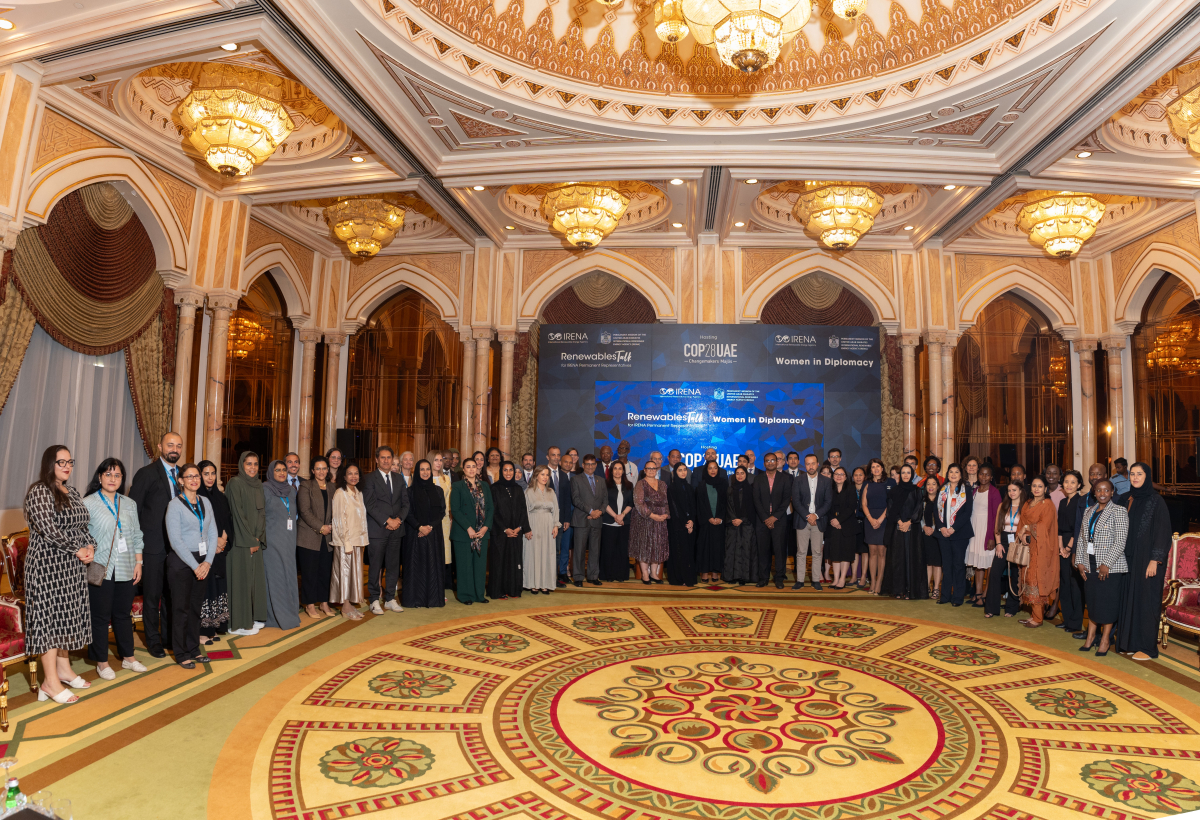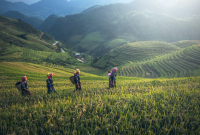Support strong Canadian climate journalism for 2025
In a year characterized by some of the hottest temperatures and most extreme weather events in human history and rapidly rising global hunger, international political action to reimagine our food system has never been more urgent.
Action to secure a climate-resilient, feminist food future — where women and all genders are equally empowered to shape the food system — is essential for ending world hunger and sustaining the planet.
Now is a pivotal time to reimagine how we govern, produce and consume in a feminist and climate-resilient way. The United Nations 28th Conference of the Parties (COP28), beginning on Nov. 30, will bring together leaders from nearly 200 countries in Dubai to assess global progress on our climate goals, identify gaps and reassert ambition for climate action.
COPing with climate change
Since 1995, COPs have proven that countries can set aside their differences to collectively solve climate change. Most notably would be the Paris Agreement, the near-universal international commitment to drastically reduce global emissions.
However, our national leaders are failing to translate climate ambitions into action. One reason is that we lack targeted mechanisms to operationalize the lofty goals of the Paris Agreement.
For instance, the food system is responsible for one-quarter of global emissions, yet we have no co-ordinated global commitment to reduce food system emissions or adapt the system to climate change.
To meet the 2030 emission reduction goals outlined in the Paris Agreement, in addition to hunger reduction and equity goals in the 2030 Sustainable Development Agenda, we need a plan for building a gender-equitable and climate-resilient food system.
The food-gender-climate nexus
Gender has been a key ingredient on the COP menu since 2014 when the Lima Work Program on Gender (LWPG) was established. LWPG commits countries and the UN climate secretariat to promoting gender equity in all activities — from national climate plans to international negotiations.
This includes planning for a climate-resilient food system. To be clear, gender equity benefits all genders, sexes, races, ages and identities by uncovering and eradicating intersectional inequities. Gender equity is a necessary precursor to food security, climate resilience and human rights.
Like progress on the Paris Agreement, LWPG implementation is lacklustre, especially for food-focused climate solutions. Food only emerged as a key climate issue at COP27 last year. As the first African COP, the Horn of Africa hunger crisis and its gendered implications were highlighted during side panels hosted by observer organizations.
These observers — often representing equity-seeking groups — cannot engage in formal negotiations, so the side events offer rare opportunities to speak up at COP. In these events, gender activists, especially female farmers and Indigenous leaders, called on world leaders to embed gender equity into problem-solving for a climate-resilient food future.
Nonetheless, COP27 ended without any commitments to explore this food-gender-climate nexus.
Instead, the COP27 food discourse focused on the Koronivia Joint Work on Agriculture (KJWA), which encourages innovation for agricultural technologies. Innovating food production is important because climate change makes farming more precarious, but so far, this “solution” offered by private corporations has worsened gender inequity by disenfranchising and disempowering female smallholder farmers.
The KJWA also ignores what happens in the food system beyond agriculture. As 100 civil society groups wrote in an open letter to COP27 leaders, our food-focused climate solutions must consider the whole food system, from field to fork. Gender equity must be at the core of these solutions.
Food for thought: Three ingredients for a successful COP28
If we keep waiting to implement feminist and climate-resilient food solutions, global hunger and vulnerability will only worsen. Leaders at COP28 must agree to build a gender-equitable and climate-resilient food system and commit to advancing three core processes.
First, we need education and awareness-building activities to deconstruct social norms that prevent women from exercising their inherent human rights, especially their rights to education and land ownership, which are necessary for leading food system solutions. Presenters at COP27 and research from the Committee on World Food Security illustrate that social norms cause land to be passed down paternally and women cannot purchase land because they lack the finances, collateral or technical knowledge to secure funding from patriarchal corporations and banks.
Second, this commitment must strengthen women’s leadership and presence in decision-making, establishing gender balance and gender-disaggregated data collection requirements. At COP27, just seven of 110 party leaders were women and only seven delegations were gender-balanced. Women suffer discrimination and sexual harassment in these UN climate conference spaces. We cannot mitigate hunger or climate change if female problem-solvers are excluded and harassed. We must cultivate safe, inclusive spaces for women to engage in international and domestic political affairs. Additionally, gender-disaggregated data, such as gendered differences in natural disaster casualties, is undeveloped but crucial for deconstructing systems that barricade women from leadership opportunities.
Finally, this commitment must secure financial and technical resource flows to women-led food projects, which are woefully under-resourced. Less than five per cent of global climate finance goes to agricultural projects; a fraction of which goes into food projects promoting gender equity. The land that women own is smaller and of poorer quality than men’s, resulting in less competitive crops. Without the financial resources to survive, as the traditional homemakers, women are forced to make unbearable moral decisions — like choosing which family members to feed. One panellist at COP27 shared a heartbreaking story about a mother who chose to feed her working husband while her daughter starved to death. A gender-equitable food system is literally a matter of life or death.
Food and gender issues remain on the margins of climate discourse, even though gender inequity directly affects over four billion people and everyone needs food to survive. The gender-food-climate nexus is the missing ingredient that politicians at COP have long been searching for. Realizing gender equity in the food system is a gateway to achieving human rights, environmental sustainability and economic prosperity.
Jenna Phillips (she/her) is a climate communicator who is dedicated to promoting sustainability literacy. She is the founder and host of Clear the Air, an online learning platform that teaches sustainability, dispels climate myths and empowers young people to take climate action.






Comments